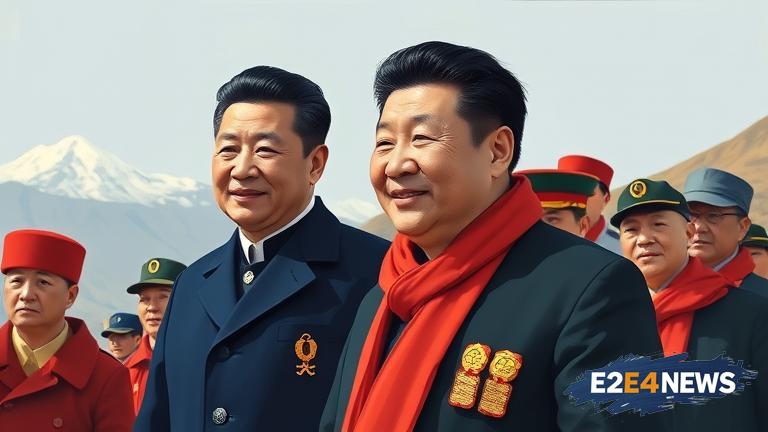Chinese President Xi Jinping’s visit to Tibet has sent a strong signal that the country is committed to developing the region, which has long been a priority for the Chinese government. The visit, which took place in late July, was Xi’s first to the region since 2011, and it marked a significant milestone in China’s development. During his visit, Xi emphasized the importance of poverty alleviation, infrastructure development, and environmental protection in Tibet. He also stressed the need to promote ethnic unity and social stability in the region. Xi’s visit was seen as a major boost to the local economy, with many businesses and investors expressing interest in investing in the region. The Chinese government has pledged to invest heavily in Tibet’s infrastructure, including the construction of new roads, railways, and airports. This investment is expected to have a major impact on the local economy, creating new jobs and opportunities for residents. In addition to infrastructure development, Xi also emphasized the importance of environmental protection in Tibet. The region is home to many sensitive ecosystems, including the Tibetan Plateau, which is often referred to as the ‘roof of the world’. Xi called for greater efforts to protect these ecosystems and to promote sustainable development in the region. The visit was also seen as an opportunity for Xi to promote his vision for China’s development, which emphasizes the importance of poverty alleviation, social stability, and environmental protection. Xi’s visit to Tibet was widely covered in the Chinese media, with many outlets praising his commitment to developing the region. The visit was also seen as a major diplomatic success, with many foreign leaders expressing support for China’s development efforts in Tibet. Despite the many challenges facing Tibet, including poverty and lack of infrastructure, the region has made significant progress in recent years. The Chinese government has invested heavily in the region, and many residents have seen improvements in their standard of living. However, there are still many challenges to be addressed, including the need to promote ethnic unity and social stability. Xi’s visit was seen as a major step forward in addressing these challenges, and it is expected to have a lasting impact on the region. The visit was also significant because it marked a new era in China’s development, one that emphasizes the importance of sustainability and environmental protection. As China continues to grow and develop, it is likely that Tibet will play an increasingly important role in the country’s development. The region’s natural resources, including its rich mineral deposits and abundant water resources, make it an attractive location for investment. In addition, the region’s strategic location, bordering several countries including India and Nepal, makes it an important location for trade and diplomacy. Overall, Xi’s visit to Tibet was a significant event that marked a new era in China’s development. The visit emphasized the importance of poverty alleviation, infrastructure development, and environmental protection, and it is expected to have a lasting impact on the region. As China continues to grow and develop, it is likely that Tibet will play an increasingly important role in the country’s development, and the region is expected to see significant investment and growth in the coming years.
